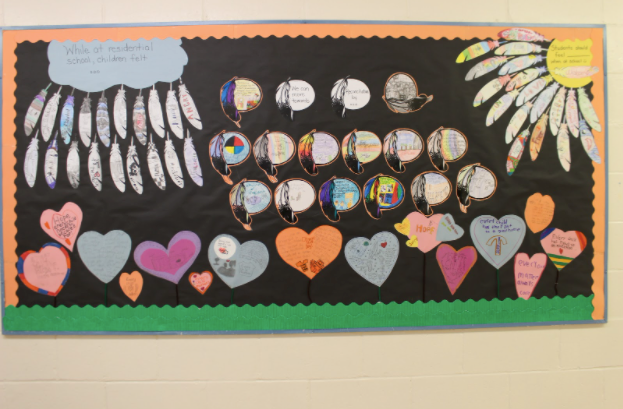Moosonee Public School (MPS) has taken the next step in raising awareness about residential schools by registering to be a Legacy School.
The Legacy School program is a free national initiative run by The Gord Downie and Chanie Wenjack Fund that aims to educate and promote awareness around residential schools and reconciliation.
Debbie Ross, an Indigenous resource teacher and school effectiveness lead, said what she liked about the program is its impetus.
“The catalyst to strengthen our commitment to the work of reconciliation by engaging, empowering and connecting not only our students, but our educators as well, to take action, reconciliACTION, and to do something with the knowledge we have gained,” she said.
According to the Downie Wenjack Fund's website, other current Legacy Schools in the area include Timmins Centennial Public School, Schumacher Public School, Cochrane Public School, Iroquois Public School, Attawapiskat’s Vezina Secondary School, and Moose Factory's Ministik Public School.
Ross said MPS has already been doing a lot of work educating students about residential schools, treaties and Indigenous history, so it was time to take the next step.
“We’re ready to go one step further and to do something with the knowledge we have,” she said.
For Orange Shirt Day on Sept. 30, each class at the MPS did a walk and students also wrote a letter to the prime minster asking him to take action on Indigenous education.
“In celebrating the Orange Shirt Day, we wanted to go beyond students just putting on an orange shirt. We wanted there to be some intentional teaching around Orange Shirt Day and what it meant,” Ross said. “We wanted our students to really understand what putting on that orange shirt meant.”
Most of her experience was working with Grade 8 students but last year, she got to work with Grade 5-6 students. The responses from students have been “excellent,” Ross said.
“The responses I got from them blew me away. I was so moved by what they knew and some of the discussions we’ve had were so powerful,” she said. “We’ve had 100 per cent participation in our school where everybody has done something around residential schools, Orange Shirt Day or movement toward reconciliation.”
Although residential schools experience impacted Indigenous people, it’s important to understand everyone has a role to play in reconciliation, Ross said, expressing hope that discussions and learnings about residential schools continue on an ongoing basis.
“We also need to educate children. Our children are going to be our future leaders, so they need to have an understanding, knowledge of the truth of their people,” she said. “Our children should not be dealing with the same issues we are dealing with today (such as) broken treaty promises, outstanding land claims, the overrepresentation of Indigenous peoples in child welfare systems, lack of clean drinking water, substandard education.”
For Treaties Recognition Week, which runs in the first week of November, Ross said she hopes to have a guest speaker at the school and to host a virtual treaty fair where students will display what they’ve learned about treaties.
Ross recommended schools to sign up for the Legacy School program as it provides many educational resources and allows schools to network, connect and learn from each other.



